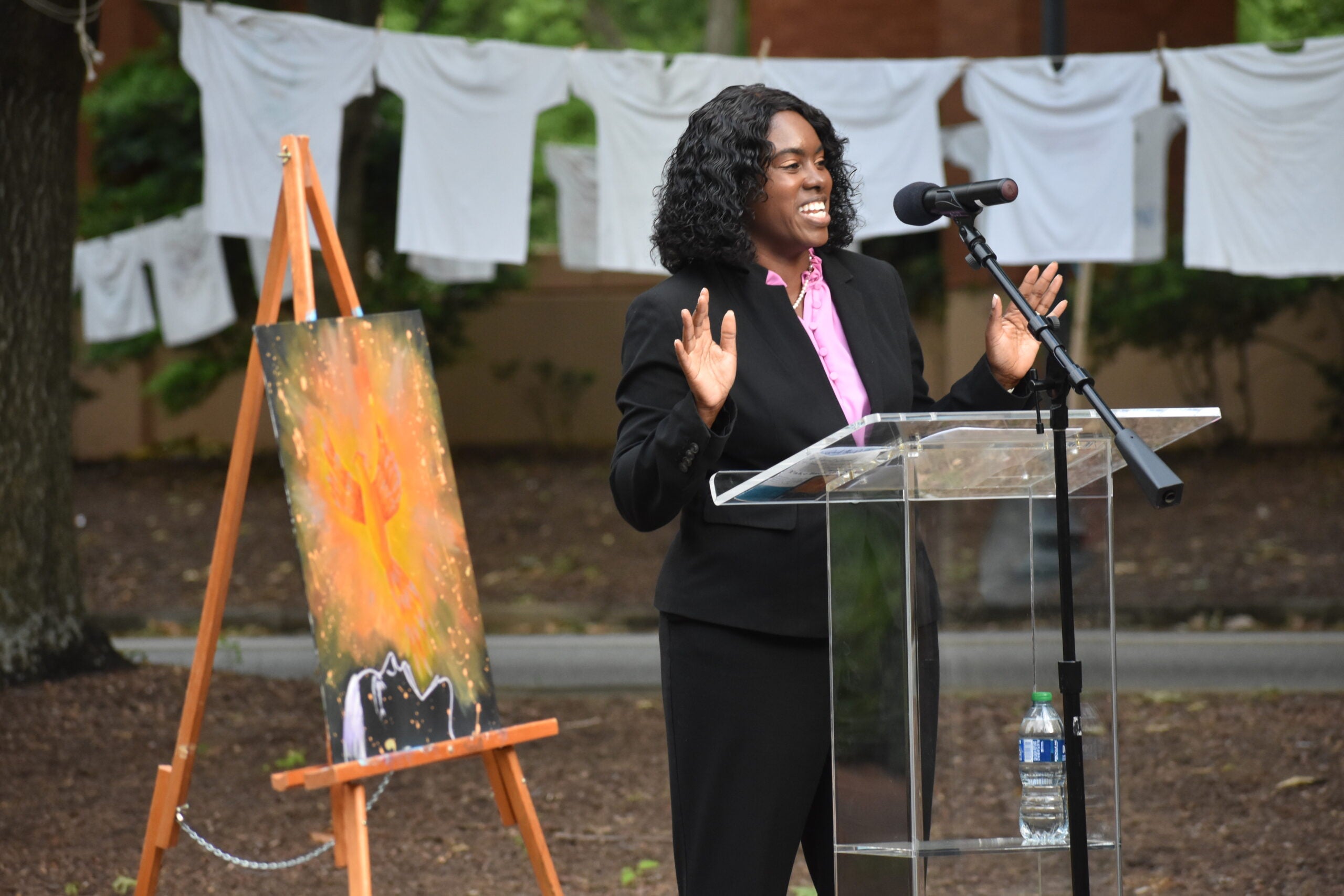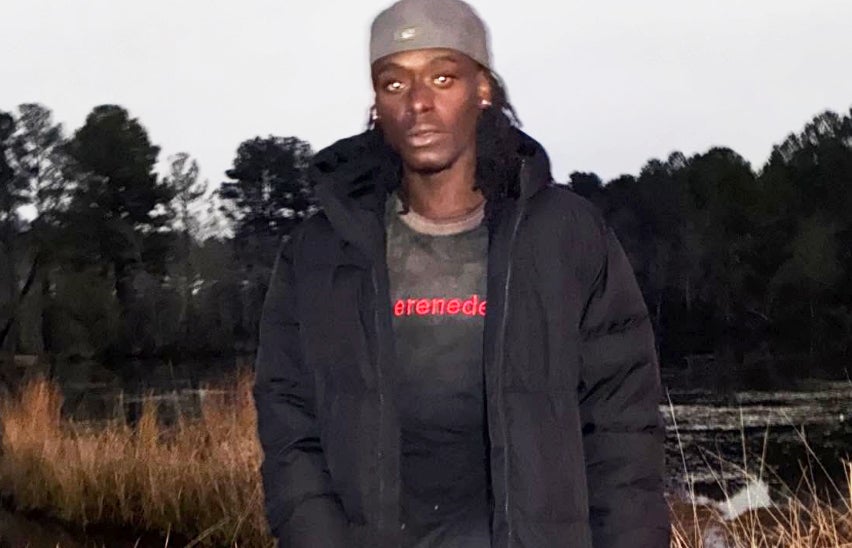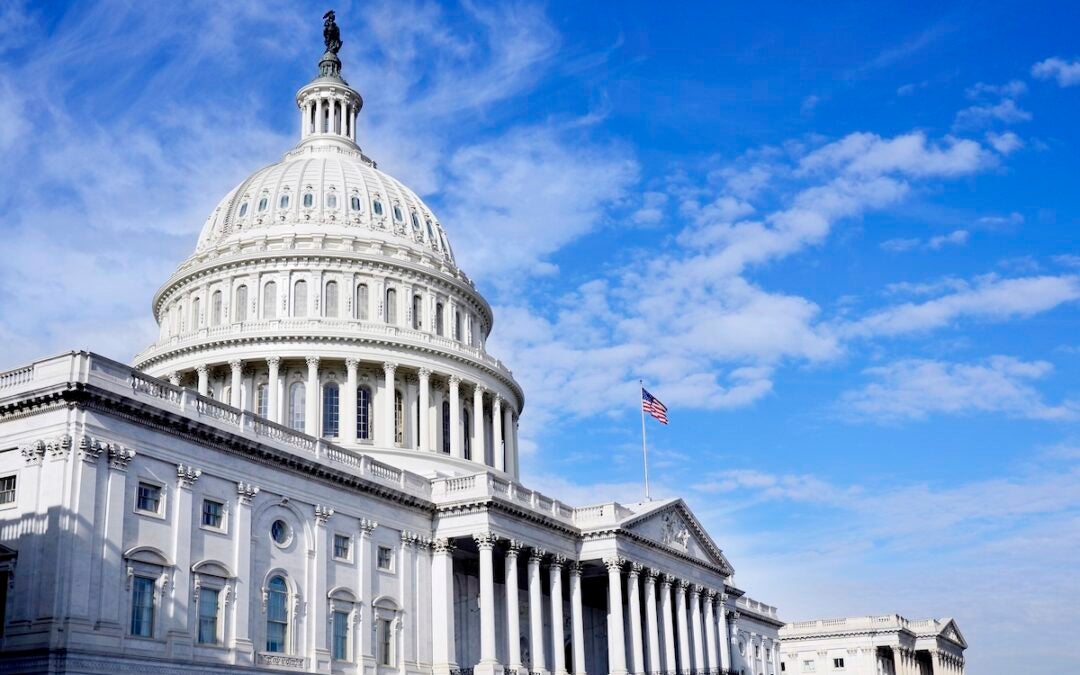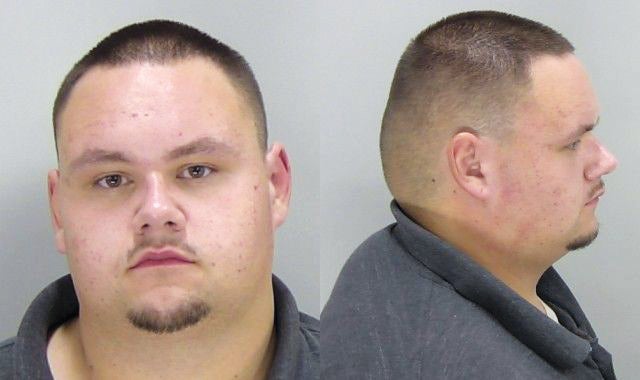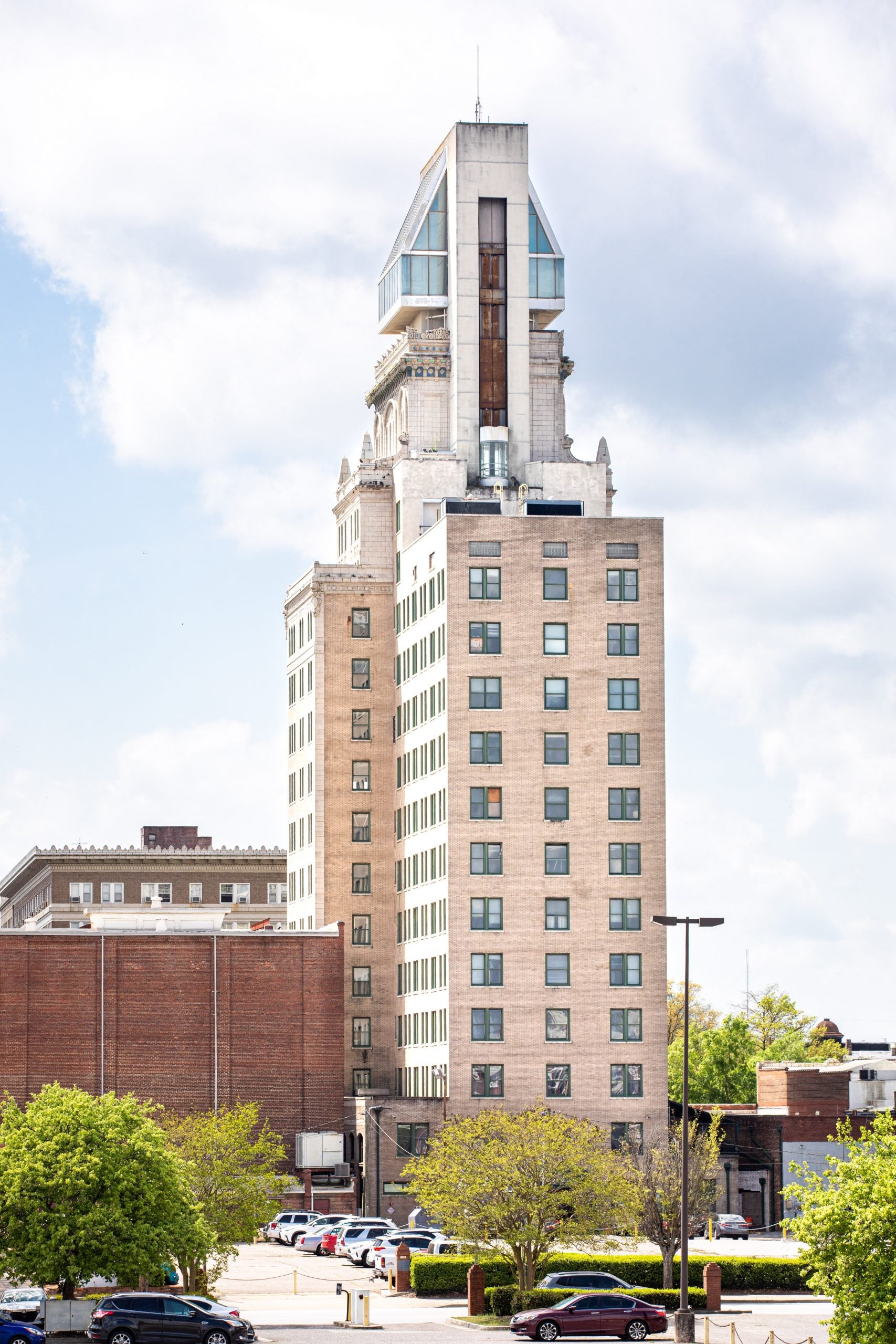On Tuesday evening, April 25, Augusta University partnered with several community outreach programs centered around Sexual Assault Awareness Month.
Various organizations attended the event and handed out fliers with information such as up-to-date statistics on domestic violence and sexual assault, as well as where to find free, local counseling and other services. Participating organizations included: Augusta SafeHomes, Rape Crisis Center, Piedmont Hospital, the District Attorney’s Office and many others.
“It’s important because it’s a community-wide event,” said Augusta University’s Title IX officer Julia Knueker. “We have people from Augusta University here, but also those that came from all over the CSRA – like Fort Gordon and Augusta Technical college.”
In addition to recognizing and celebrating the “triumphs of survivors,” the event strongly focused on informing victims several options for where and how they can discreetly report any sexual assault crimes to authorities.
“Caring for our students and our community is part of our mission; it goes to our values here at Augusta University, and it is something that isn’t a second thought,” said Knueker. “I think, in general, people are afraid to talk about it. The word rape or sexual assault makes people uncomfortable, so that’s another reason why we have events like this.”
According to Knueker, fighting against conversational stigma is a vital role in educating and bringing about awareness of sexual assault; without open conversations, victims are more likely to feel alone and isolated in their experience, despite sexual assault happening to every 1 in 3 women.
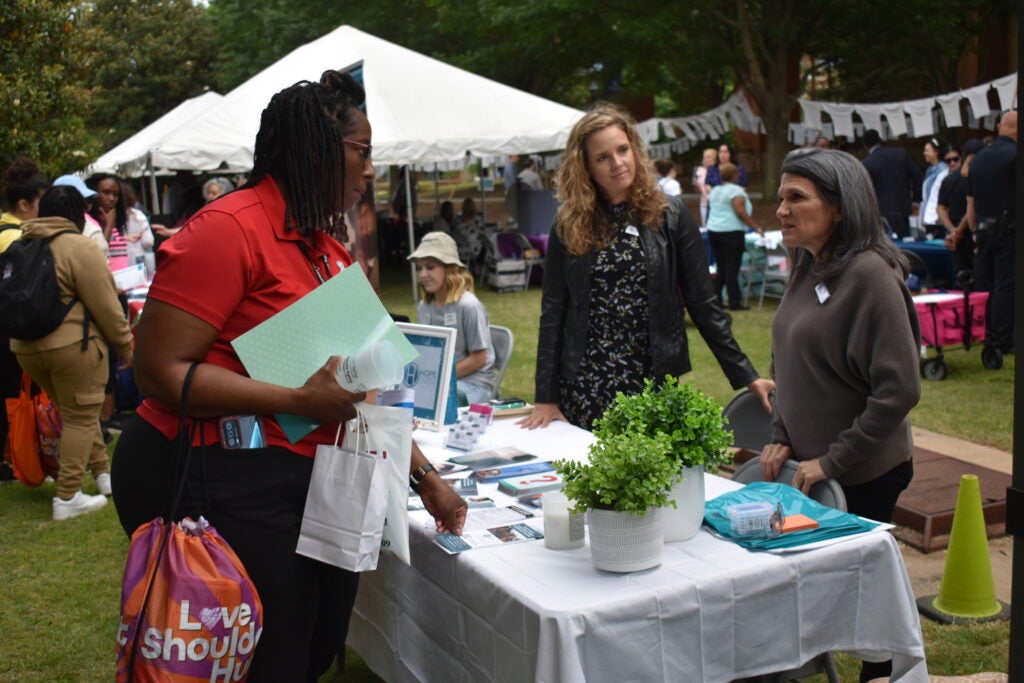
“As advocates we come into a lot of contact with victims, and think it’s very important that people know that we are in Augusta’s District Attorney’s Office, because a lot of people don’t know that the victim advocates are there,” said Adorea Hawthorne, director of the Victim and Wellness Assistance Program. “We are trying to make sure that we get out into the community even more, so that people know we are available, and we can give them the information they need to know about their rights as victims.”
Hawthorne said she believed one of the most important services many places provide for victims is therapy, because it helps victims try to heal from their trauma.
Victim Advocate and Augusta University student Katelynn Chason said she believed the Take Back the Night ceremony was important, because it provided students with the opportunity to learn about different resources outside of their school.
“There’s a lot of outside information that, unfortunately, campuses don’t always give,” said Chason. “Having the extra resources, including the university ones, is just good for everyone.”
University student Hannah Muza said she thought having an annual sexual assault awareness event was paramount for college attendees, because it encouraged open discussions between students and professors about reporting cases. For those who might feel conflicted about reporting a well-known friend or relational partner, Muza said victims can sometimes shut down for fear of not being believed by those closest to them – having a supportive staff can assist in bridging that gap for survivors.
“It can show students that, if you’re too afraid to reach out to officers or officials, you can go to your professors to help you,” she said. “That sort of camaraderie is very helpful for people.”
To fight negative outlook or nervousness around law enforcement, university police also participated to meet and inform students about the multitude of services they provide for students’ protection and mental wellbeing.
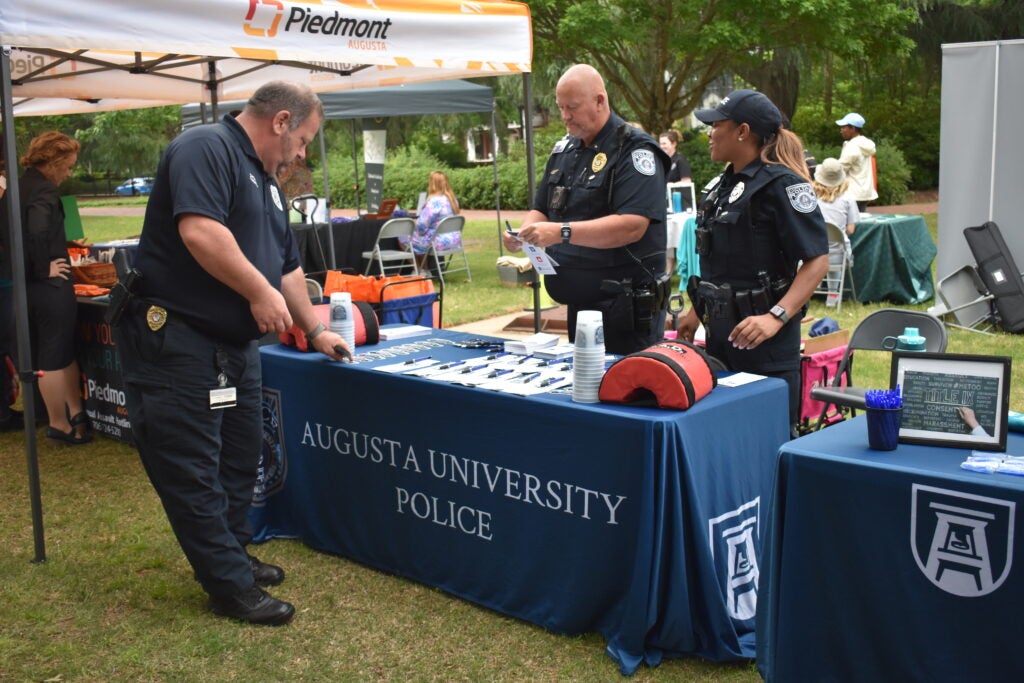
“We are here to help, and our purpose for being here is to keep this campus safe,” said Capt. of Professional Standards Harry Smith, a university officer. “We want to make sure we are adequately investigating those crimes, but also connecting them with the social services so it’s a more holistic approach. We really want people to let us know when something happens, so that we can help them get through that. ”
After allowing different organizations to handout information to participants, the Take Back the Night ceremony continued with brief speeches from multiple community figures who have dedicated their life in the fight against sexual assault.
Among these speakers was Deshala Dixon, the division chief of the District Attorney’s Office’s Special Victims Unit, who spoke on the honor she felt at helping victims fight their attackers in court.
“I call myself a warrior, and in my job I’m not trying to send someone to jail – I’m trying to get justice for victims,” she said. “I am a waging a war against sexual assault … I do this job for the victims.”
Describing various cases of sexual assault involving women and children, Dixon said she was honored to work for District Attorney Jared Williams, because of his focus in convictions for sexual assault cases.
“Since our implementation we have had a wonderful success rate,” she said. “Everybody knows that specialization helps you master your craft, … and so that specialization has continually helped us win cases and interact with our victims.”
Dixon emphasized the importance of collaboration and education amongst lawyers and advocates to win particularly difficult court cases, and how the office will continue to battle sexual assault.
“Our advocates help us in the war by keeping our victims informed about the criminal process and just being there to support them with anything they need,” said Dixon. “The District Attorney’s Office knows and understands that sexual assault is a serious matter, we are taking it seriously. The war is on. The battle is on – we are putting our battle gear on, … and we are taking prisoners.”
Following Dixon, three survivors told the story about their personal experience with sexual assault, and spoke on the hopelessness they first felt when initially dealing with their trauma.
Dr. Gina Hammock, an emeritus professor at Augusta University of psychological sciences, spoke on how her daughter admitted to being repeatedly sexually assaulted by Hammock’s husband.
“Here is what I learned from our experience,” she said. “You find strength when you think there is nothing left. I went a little nuts for five or six months after; however, I still managed to keep us together … I learned that the strongest network that I had was made of women.”
Hammock spoke on how mothers, sisters, nieces and other friends came together to champion and cheer on herself and her daughter whenever needed.
“Sadly, I found out how many others in my sphere were victims of sexual trauma. It was so disheartening to realize how prevalent this actually is,” she said. “Most importantly to me, I learned that strength is something that doesn’t have a cap.”
Like the other victims, who will not be named for the sake of privacy, Hammock attributed expert therapy and “wonderful” counseling for her and her daughter’s continual recovery.
“I have come out on top of my trauma with my child intact,” she said. “I have since retired and become a certified, court appointed advocate for kids. In that role, I hope to be a support for children who aren’t as fortunate as we were.”
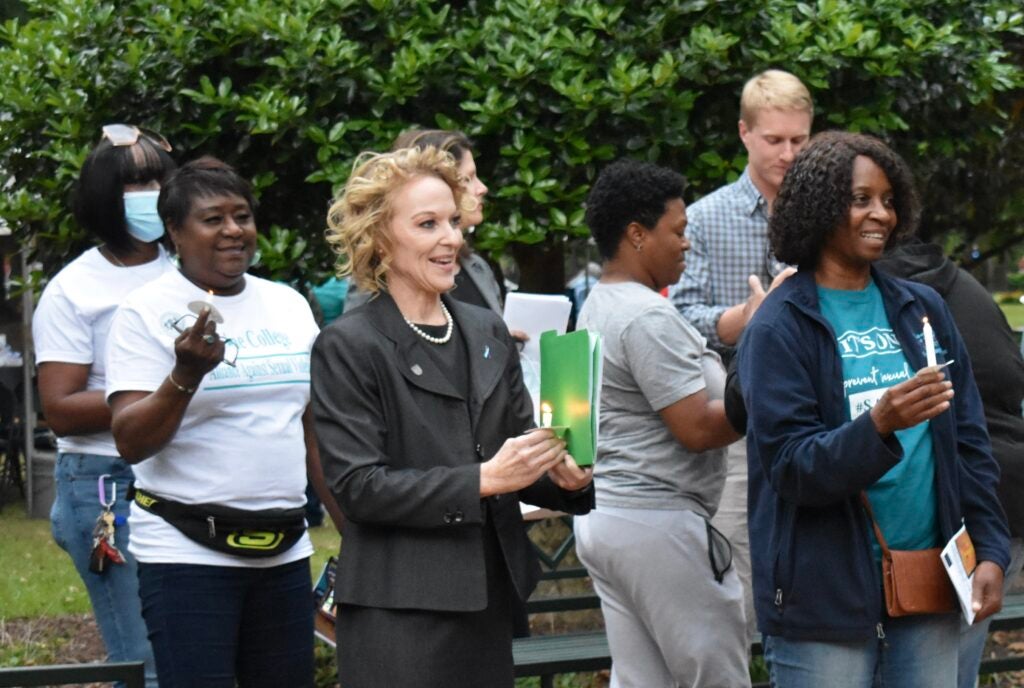
To end the event, a candle lighting and campus march was led by advocates, victims, volunteers and lawyers to bring further awareness to those who did not attend the gathering in hopes of continued outreach.
“So here we are … we are in society working to help others make the world better,” she said. “We took back our rights. We took back our freedom, control of our bodies and our rights. We took back the night.”

